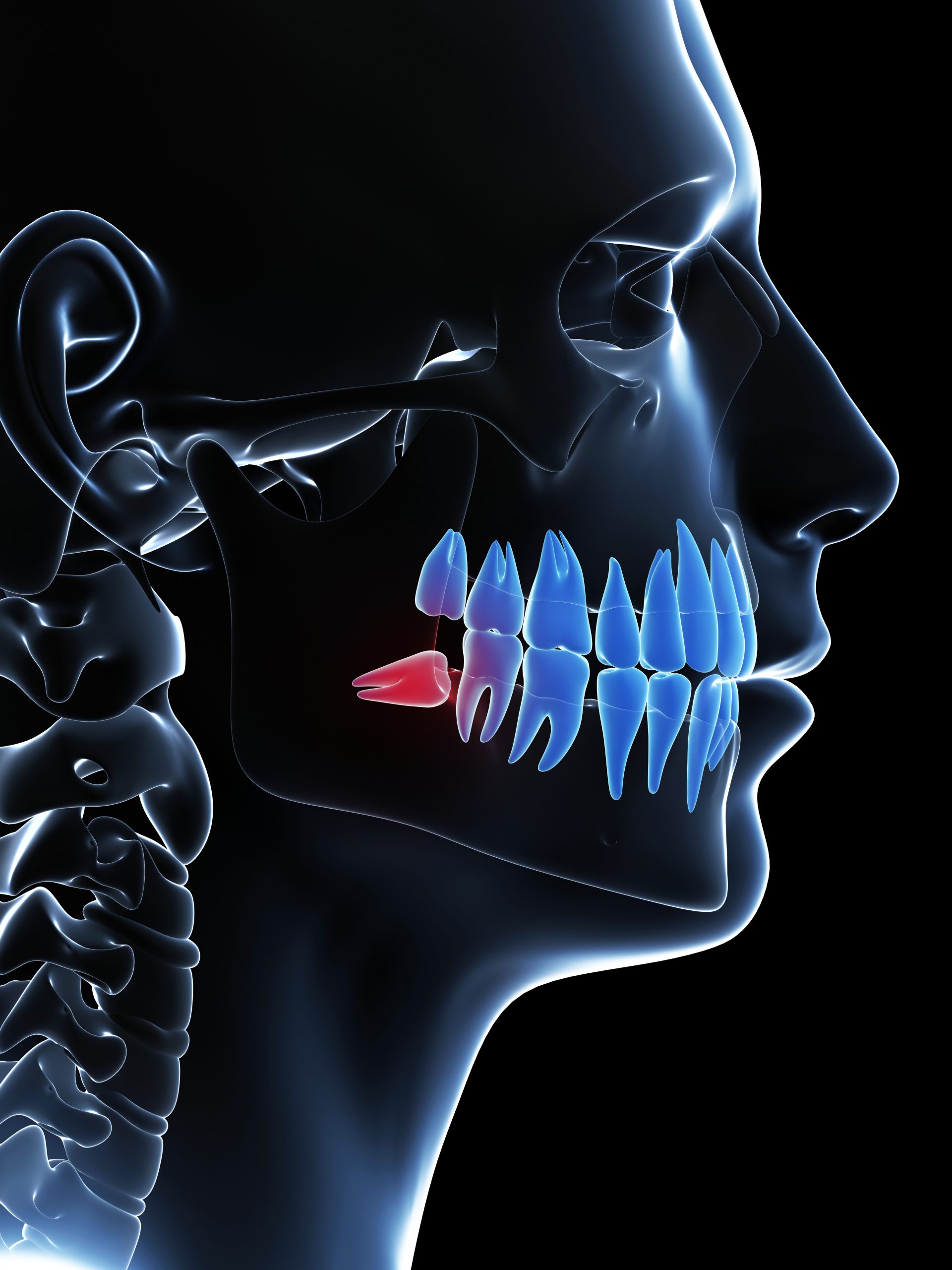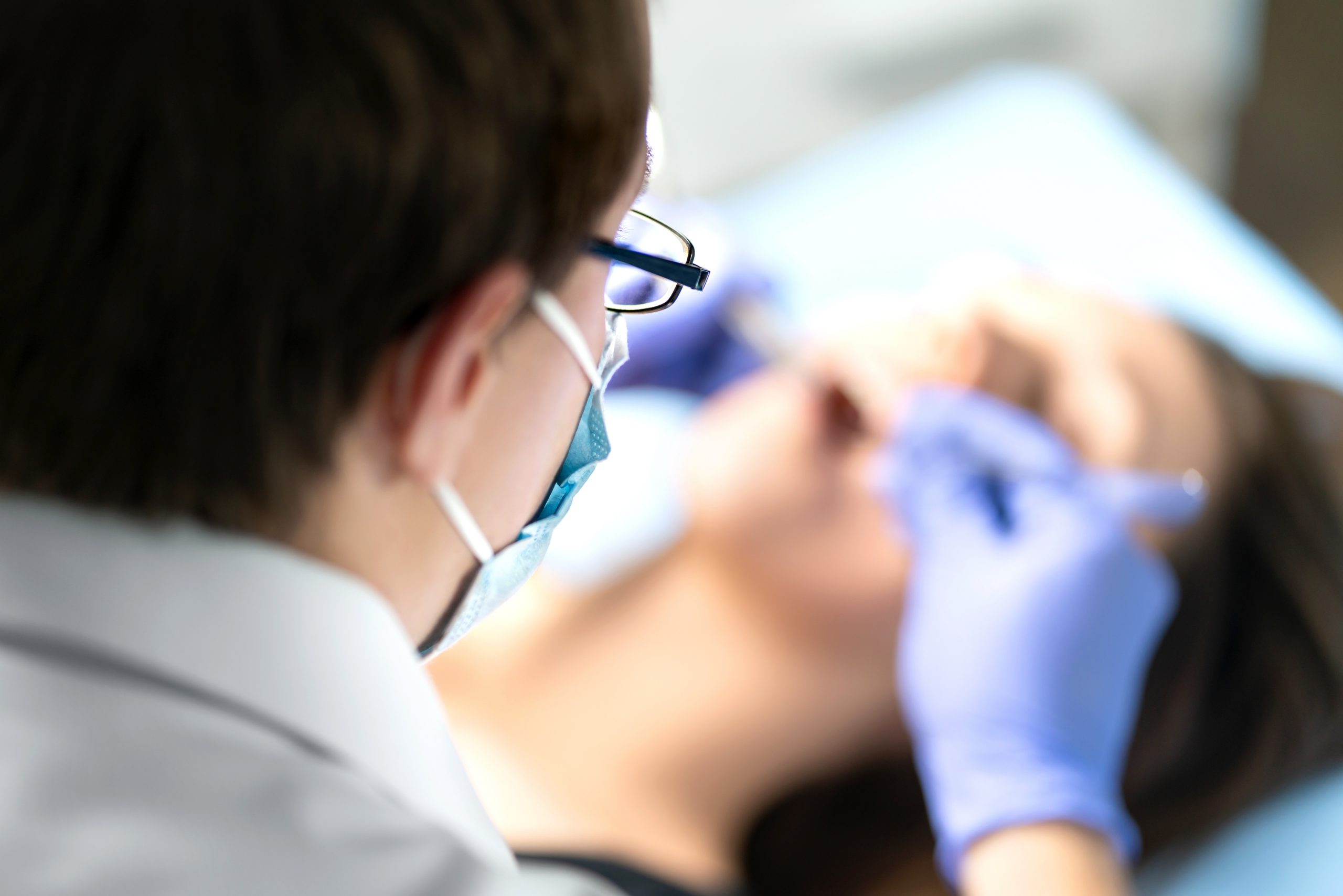Getting your wisdom teeth taken out! For many young people, it’s almost a “rite of passage” of sorts. Like any oral health procedure, you (or your parents or guardians) may have questions, perhaps chief among them “What happens if I need my wisdom teeth removed while I’m in braces?”
This piece will break down everything you need to know!
With Age Comes Wisdom… And your Third Molars!
Wisdom teeth are also known as the “third molars” because they are your third set of molar teeth that erupt into the dental arch.
Many times, these third molars don’t have enough room in a mouth to erupt. We can look to evolution here; as prehistoric humans used to have much larger jaws, needed for tearing and chewing food.
A contemporary human mouth, however, just does not have the space to support these additional teeth. There is a chance one of these third molars could become “impacted,” or stuck in the gum tissue or bone. An impacted tooth can attract bacteria, or even damage neighboring teeth. Gum disease and a host of other dental problems can ensue. Erupting wisdom teeth can grow at various angles in a person’s jaw, sometimes even horizontally.
Even when a wisdom tooth seems to be growing and emerging without issue, many people – under the guidance of their oral health care provider – opt to get these teeth removed.
Why are These Third Molars Called “Wisdom Teeth?”
The term has roots in a Latin phrase – “dentes sapientiae;” so called because these third molars usually appear in a person’s mouth sometime in their mid-teens to mid twenties, when they become an adult and acquire “wisdom” (It is no coincidence most patients of Dr. Koch get stellar grades in school!)
How Do I Know When My Wisdom Teeth Should Be Removed?
As no two human mouths are identical, there is no “industry standard” age, date or time when you should get your wisdom teeth extracted. Additionally, these molars may not grow at the same pace, so the potential exists these extractions need to be performed over multiple visits.
The discussion of when a child should have these teeth removed typically begins in the teenage years under the counsel and close care of a general family dentist. An optimal time to perform the extractions is when the molars have grown about 1/2 or 3/4 of their potential full size.
Most human mouths simply do not have the space for third molars or “wisdom teeth” to erupt without causing oral health issues.
To ballpark an age range year, that puts the patient roughly between 16 and 22 years old. Again, this is not an “applicable to everyone” scenario and the dentist and any oral surgeon they consult with to perform the procedure must be conservative and discerning. Attempting to remove a wisdom tooth prematurely may pose a challenge for the surgeon to grasp onto the crown of the developing tooth to take it out.
Conversely, the human body stops growing in a person’s mid to late twenties, so the roots of the wisdom teeth may at that point have grown too long, complicating the extraction procedure.
If you experience mouth irritation or pain and you have not had your wisdom teeth extracted, consult your family dentist. They will give you counsel on if your wisdom teeth are the culprit or not, and a timeline for a planned extraction.
How Does Having My Wisdom Teeth Removed Affect My Orthodontic Treatment?
Breakthroughs in oral healthcare and orthodontic treatments are constantly being realized. Here is a consensus most practitioners have reached: “Removal of wisdom teeth will not guarantee a person’s teeth don’t go crooked, and removal of wisdom teeth during or following treatment will not guarantee the teeth stay straight, free of relapse.”
What to do about your wisdom teeth if you are deemed a candidate for orthodontic treatment largely depends:
- On the age of the patient (and the development of their wisdom teeth)
- The orthodontic issues that warrant correction
- What the patient’s treatment goals are
Those who have perused our FAQ page know that most patients begin treatment at our practice right around the age of twelve, with some patients displaying conditions that require Phase I treatment around the ages of seven or eight.
At the seven/eight age range, it is possible the child’s wisdom teeth haven’t even formed. Therefore, it is not mandatory – and in most cases not adviseable – for a wisdom tooth extraction procedure to be performed before starting treatment with braces.
If the roots of the patient’s third molars are developed enough that the extraction can be performed seamlessly, then that is a circumstance where we may recommend wisdom tooth removal before the start of treatment.
During Your Orthodontic Treatment
If you begin treatment with your wisdom teeth still in your mouth, and if the erupting teeth begin to cause you significant, unmanageable pain, please let us and your general family dentist know immediately. As with any pain management associated with treatment, this is not something you should feel obligated to “tough out.”
Both Dr. Koch and your general dentist will assess the angle the tooth is erupting in and how it is impacting other teeth. A wisdom tooth extraction can be performed on a patient who is in the midst of orthodontic treatment – qualified oral surgeons do it all the time!
While Koch Orthodontics does not perform wisdom tooth extractions, we will refer you to a specialist near you.
Does Koch Orthodontics Perform Wisdom Tooth Extractions?
We do not perform wisdom tooth extractions but will gladly recommend a specialist in your area.
In Summary
No two mouths are identical, no two mouths develop identically, and there is no “one-size-fits-all” recommendation for a person’s wisdom teeth if they are determined to be a candidate for orthodontic treatment. Wisdom teeth are removed without issue, however, in orthodontic patients prior to, during, and after orthodontic treatment all the time.
We’ll work closely with your general dentist to give our best recommendation on the matter of wisdom teeth extraction based on the status of these teeth and what your orthodontic treatment seeks to correct. If you or your family member have questions, ask us!
If you feel you or a family member may benefit from orthodontic treatment, contact Koch Orthodontics today. Like us on Facebook and follow us on Instagram for an inside look at who we are, and what we do!


